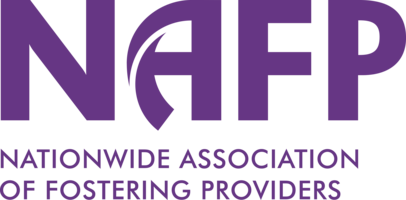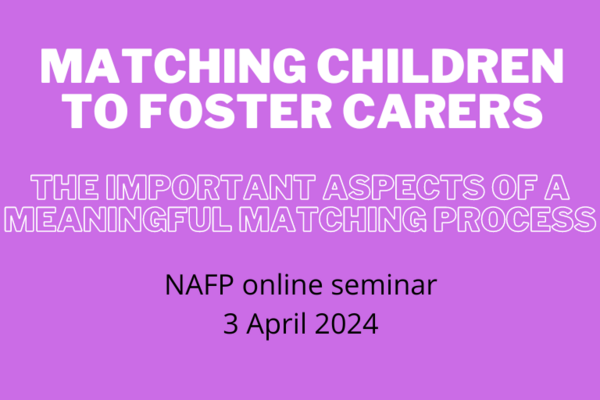In this online seminar, we will consider the important aspects of a meaningful matching process. It is becoming a theme in many inspection reports that matching children with foster carers is not robust enough, and that decision making is not specific enough to the reasons why your carers are considered the best option for the child.
Does this result in more endings for children?
How can you evidence you are a learning organisation and have reflected on your own matching process?
Informed and specific matching will hopefully lead to fewer breakdowns for children. Let’s explore together the importance of improving things for children to ensure there is a “connection” to their carers, this can be invaluable in helping children and carers develop their relationship. Together we will work through the matching process and consider the importance of triangulation. We will consider important elements of evidencing decision-making, and why your carers are the best choice for the child.
We will talk about the importance of the planning for children with their carers and how the placement planning meeting should start with the matching process, the details of how the needs of children can be met on a day to day basis by their foster carers and the team around the child, but also consideration of any unmet needs for children with the foster carers and how they will be considered in an ongoing way.
15.1 NMS England - The fostering service only suggests foster carers to local authorities as a potential match for a child if the foster carer can reasonably be expected to meet the child’s assessed needs and the impact of the placement on existing household members has been considered. Where gaps are identified, the fostering service should work with the responsible authority to ensure the placement plan sets out any additional training, resource or support required.
Schedule 4 – fostering regulations Scotland - The foster carers should be seen as full members of the team responsible for the care of the child. As such, they should have all available information, to consider firstly their ability to meet the child's needs and any safety issues for the child or any other member of the household. They also need to begin planning for how they will support the child's wellbeing and development while in their care; and they will also need to prepare other members of the household for the arrival of the child.
8.1 NMS Wales - Local authority fostering services, and voluntary agencies placing children in their own right, ensure that each child or young person placed in foster care is carefully matched with a carer capable of meeting her/his assessed needs. For agencies providing foster carers to local authorities, those agencies ensure that they offer carers only if they represent appropriate matches for a child for whom a local authority is seeking a carer.
About the trainer
Catherine Lockett has worked within social care for 38 years as a practitioner and in senior management positions within the fostering sector, also within camhs, leaving care and safeguarding, both for local authorities and the independent sector. She has experience of setting up, managing and leading smaller to larger fostering services and held positions such as responsible individual, panel chair, panel advisor and agency decision maker. Catherine is an associate for NAFP and takes a lead on practice discussions, including working with NAFP's various practice forums to help support new practice guidance across the sector.
(this event will be hosted on Zoom - accessibility; delegates will be emailed details of how to join a few days beforehand)





